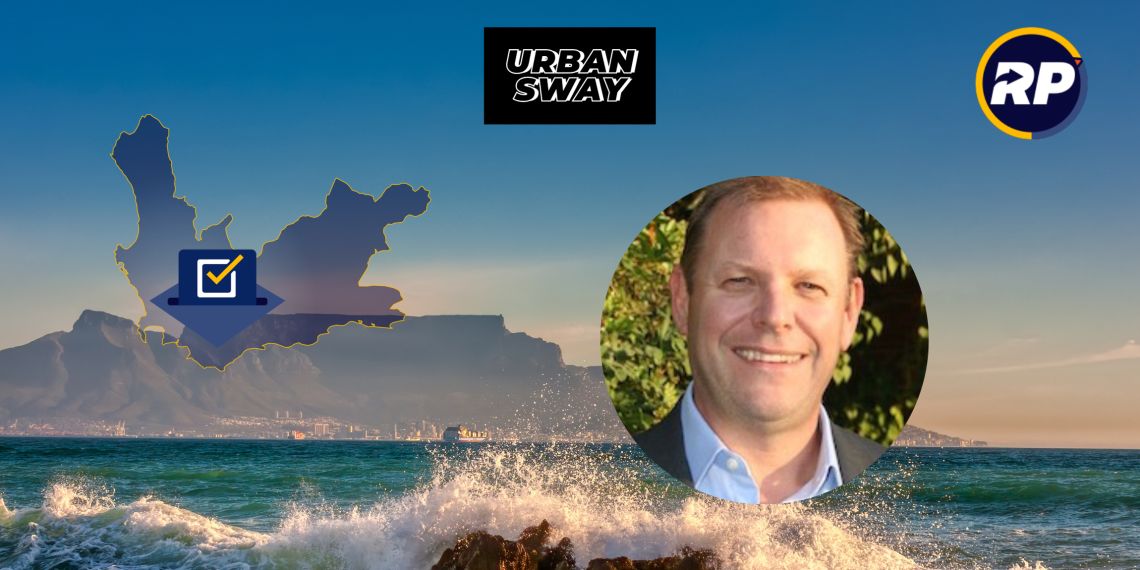In a ‘significant’ development for South African politics, the Referendum Party (yes, another political party) was officially launched on November 9, advocating for the independence of the Western Cape. Lester Kiewit had an exclusive interview with Phil Craig, the Co-founder of the Cape Independence Advocacy Group and the founder of the Referendum Party.
The party aims primarily at Democratic Alliance (DA) voters who support the idea of Cape Independence. Its mandate is to keep the DA in power as a coalition partner and to call for a referendum on the Western Cape’s separation from the rest of South Africa.

Phil Craig, Co-founder of the Cape Independence Advocacy Group and Referendum Party Founder, revealed in the interview that the party will be on the ballot both provincially and nationally for the 2024 elections. He emphasized the massive amount of support for Cape Independence, stating that it is beyond doubt.
According to Craig, recent polls conducted by the party found substantial support for Cape Independence among voters. He asserted that the people should have an opportunity to vote on a referendum, and the sample polled is representative of the demographics of the Western Cape.
“We want the premier to listen to the people of the Western Cape and to actually give meaning to the word democracy,” said Phil Craig. He accused Premier Alan Winde of avoiding democracy by refusing to call a referendum.
The Referendum Party’s website outlines its objectives, stating that it is a single-issue political party with the sole purpose of forcing Premier Alan Winde to listen to the Western Cape people and to call a referendum on Cape Independence. The party pledges not to remove the DA from government in the Western Cape but to vote with the DA and against the ANC to reassure voters.
Craig explained that the party has exhausted every other avenue, including asking the Premier for a referendum, marching to the provincial parliament, and presenting independent research that shows two-thirds of Western Cape voters support a Cape Independence referendum. Despite these efforts, Premier Alan Winde has stubbornly refused to call a referendum, breaking the DA’s promise, according to Craig.
“We are now left with just one option – to ask Cape Independence supporters to vote for the Referendum Party in 2024 to force the Premier to listen to the people he has sworn to serve,” he concluded.
However, the Cape Independence movement has faced criticism and encountered challenges. Accusations of racism have been leveled against the movement, with some critics alleging that it seeks to create a white ethnonationalist state reminiscent of the apartheid era. A poll conducted by Victory Research on behalf of the Cape Independence Advocacy Group (CIAG) in July 2021 found varying levels of support among different racial groups.
In April 2022, the CIAG faced accusations of racism for a pictograph depicting the rest of South Africa in predominantly black shades and the Western Cape in shades of brown, black, and white. The imagery sparked controversy and fueled concerns about the movement’s intentions.
Legally, critics argue that a constitutional amendment would be required for true autonomy, as Section 235 of the South African Constitution, while acknowledging the right of self-determination, does not impose a legal obligation for the National Assembly to respect this right. This raises questions about the binding nature of a potential referendum.
Moreover, opponents express concerns about the specter of civil war, suggesting that even if a successful referendum were held, the national government might not recognize the outcome. There are apprehensions that the military could be deployed to control the region, potentially leading to civil unrest.
While the Referendum Party launches with high hopes, these criticisms and challenges underscore the complexity and multifaceted nature of the journey toward greater autonomy for the Western Cape. The path to Cape Independence involves navigating not only political and legal intricacies but also addressing concerns about inclusivity and potential social divisions. The coming months will likely see intensified debates and discussions surrounding the viability and implications of the Cape Independence movement.




























